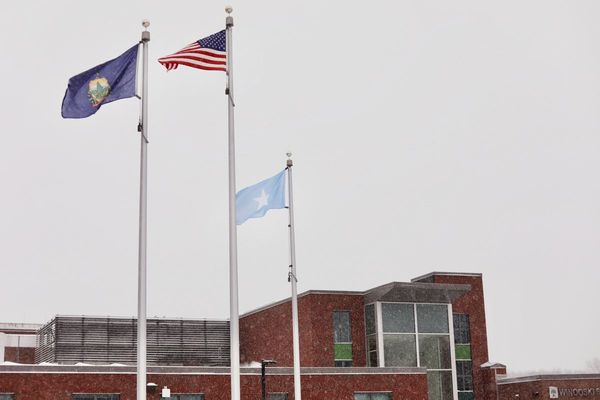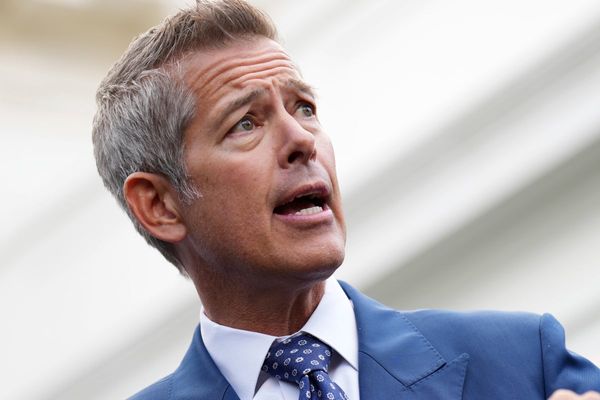
In a small courtroom in Lismore in northern New South Wales in June, a senior firearms registry official gave evidence of a disturbing gap in Australia’s gun control laws. The court was exploring the circumstances of a murder-suicide, in which a father, Wayne Smith, shot dead his 15-year-old son, Noah, before turning the gun on himself.
Smith was licensed to own a firearm because he had told authorities he was going to use it for recreational hunting, one of a handful of genuine reasons used to possess guns across most jurisdictions.
As evidence to support this, he produced a letter from a property owner that said Smith had permission to shoot on his land.
The landowner was acting within NSW gun licensing laws when they provided the letter – but it was akin to a golden ticket. Once obtained, it could be used in perpetuity as a basis to hold the firearm and hunt anywhere, not just on the property cited in the letter.
It could be relied on without scrutiny even if the landowner died, or moved, or stopped wanting people to hunt on their land.
All gun owners had to do was check a box when they renewed their licence saying there hadn’t been any change of circumstances around their permission to shoot.
Smith is believed never to have used the gun on the property that had issued him the permission-to-shoot letter. He may have taken it to other properties to shoot on occasion, the court heard.
“That would have been permissible based on the license that he held,” Janelle Green, associate director of the NSW police firearms registry, told the inquest.
But the problem ran deeper. Until recently, police had no way to track how many letters were being issued by individual property owners.
The recent introduction in NSW of a new system called Gunsafe changed that, and the registry quickly detected a problem.
Green said a “high volume of letters” were found to be coming from a single property – not the one that had issued a letter to Smith.
“As a result of that, the firearms registry made a number of inquiries with the licence holders who had used that particular piece of land in support of their genuine reason for holding a firearms licence and a number of firearms licences were revoked as a result,” she said.
Sign up: AU Breaking News email
The revelations have prompted calls for an overhaul of the state’s licensing laws, with concerns that permission-to-shoot letters are not being adequately regulated.
Separately, in NSW, police previously identified a business that allegedly fraudulently issued permission-to-shoot letters that were then used by organised crime members to obtain gun licences.
NSW authorities are now pushing for stricter requirements for permission-to-shoot letters.
Green said police wanted changes to ensure fresh permission-to-shoot letters were obtained whenever a firearm licence was renewed. That would require gun owners to provide new letters, or updates or confirmations, from landowners every time, bringing it in line with requirements for other licence requirements.
“For sport target shooting as an example, someone is required to participate in a set number of participation activities, shooting activities per year,” she said. “At the moment, there is not the same requirement … for someone to continue to substantiate based on a letter of authority or permission to shoot. The firearms registry is seeking to change that.”
Similar problems were found in Western Australia before the state government updated its firearms legislation, with the former premier Mark McGowan saying there had been an “abuse” of the system that allowed people to access firearms licences with letters to hunt.
WA police told Guardian Australia five properties in the state had sold almost 10,000 permission-to-shoot letters, with one property alone selling 3,000 letters.
In another case, a firearms dealer had bought a property in order to sell the letters along with guns.
“This was a bastardisation of what was a genuine process, and people were not being criminal, but just taking commercial advantage where it shouldn’t have been,” WA police commander Lawrence Panaia told Guardian Australia.
“If it’s legitimate, it’s not a problem, [but] if you’ve got thousands of letters being issued by one property, for example, what are these people doing if they’re not genuinely hunting?”
WA has now outlawed the selling of hunting authority letters as part of its revised firearms act.
Other state police forces say they are unaware of large volumes of permission-to-shoot letters being issued by individual landowners, although some states do not allow them to be relied on in the same way as NSW.
In Victoria, police can’t collate data on how many permission-to-shoot letters are coming from individual landowners because they are stored in their internal systems as scanned images and would need to be manually opened and counted individually.
Queensland police says it does not have the resources to obtain data on permission-to-shoot letters, but it is “not aware of a small number of landowners offering permission to shoot on specific land-holdings”.
The convener of the Australian Gun Safety Alliance, Stephen Bendle, says laxity around authority-to-shoot letters could be contributing to the proliferation of guns in the community and undermining genuine reasons for holding a firearm.
“We think that the system seems to be being exploited when authorities to hunt are not being validated, and we would hope that police and firearm registries try to validate those more responsibly,” he says.
Research from the Australia Institute shows there are shortcomings in the system that allow people to claim recreational hunting as a genuine reason for holding a licence.
There are more than 200,000 Category A hunting licences in NSW, but according to data from government body AusPlay only 11,000 people participate in recreational hunting, each year.
Bendle says it was difficult to know the extent of the problem on a national scale, given the lack of data.
“We have evidence … that it is being rorted and there is no reason to think that the same level of exploitation is not also happening in other states.”
In Australia, the crisis support service Lifeline is 13 11 14. Other international helplines can be found at befrienders.org







